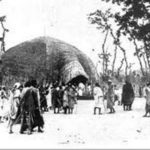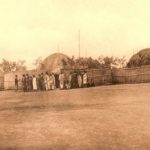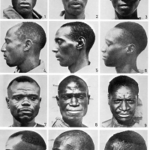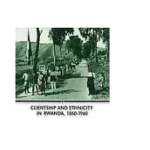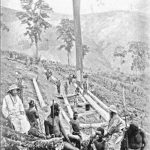Administrative Unification In KINYAGA
When German authorities established themselves in Rwanda they embarked upon a policy of indirect rule, using existing traditionaln authorities to govern the country for them, supposedly without altering existing patterns of authority. In fact, the very presence of the Europeans…
European Competition Over Southwestern RWANDA
The death of Rwabugiri in 1895 plunged the kingdom into mourning for four months, and his chosen heir, Rutarindwa, assumed power. Meanwhile the royal court moved out of Kinyaga, not to return. The period of mourning was scarcely ended when…
Nduga’s Attitudes Toward KINYAGANS
As central chiefs and the royal court moved into Kinyaga the local population became sharply aware of differences between themselves and the haughty courtiers from Nduga, the Rwandan heartland. Attitudes ofNdugans toward Kinyagans ranged from mere disdain to complete mistrust.…
Kinyagans And Cultural Identity
As the previous survey indicates, Kinyagan society in the mid-nineteenth century was heterogeneous, composed of both non-Rwadan and Rwandan elements. It is not clear to what extent this heterogeneity was reflected in the cultural identity of early immigrants. For example,…
Kinyaga And Central RWANDA: Early Contacts
Studies of Rwanda often assume that before the arrival of Europeans, Rwandan state power extended uniformly to most (or all) regions of the kingdom. Such studies also tend to imply that the features of Rwandan society observable in the 1950s…
Concepts And Paradigms
As noted, experienee in the field shifted the focus of inquiry, and brought four concepts into the foreground of this concern: ethnicity, clientship, labor control practices, and state formation. To illustrate the significance of these four elements in contrast to…
The Functionalist Model of Rwanda
BEFORE EXPLAINING the significance of my focus on ethnicity, patron–client relations, and labor-control practices as dynamic elements related to the growth of state power, I want to show why the prevailing models of the 1950s and 1960s distorted or neglected…
The Social Preconditions of Revolution
Revolutions are often seen in terms of a spontaneous burst of political activity of great intensity. Less attention is generally given to the social preconditions of revolution-the structures, processes, and perceptions that make such activity possible. This book reflects on…
State And Society Under RWABUGIRI
By the time of the European arrival at the end of the nineteenth century, Rwanda had grown, over a period of three centuries, from a small polity into a sizable state. In the past, the territory controlled by the kingdom…

